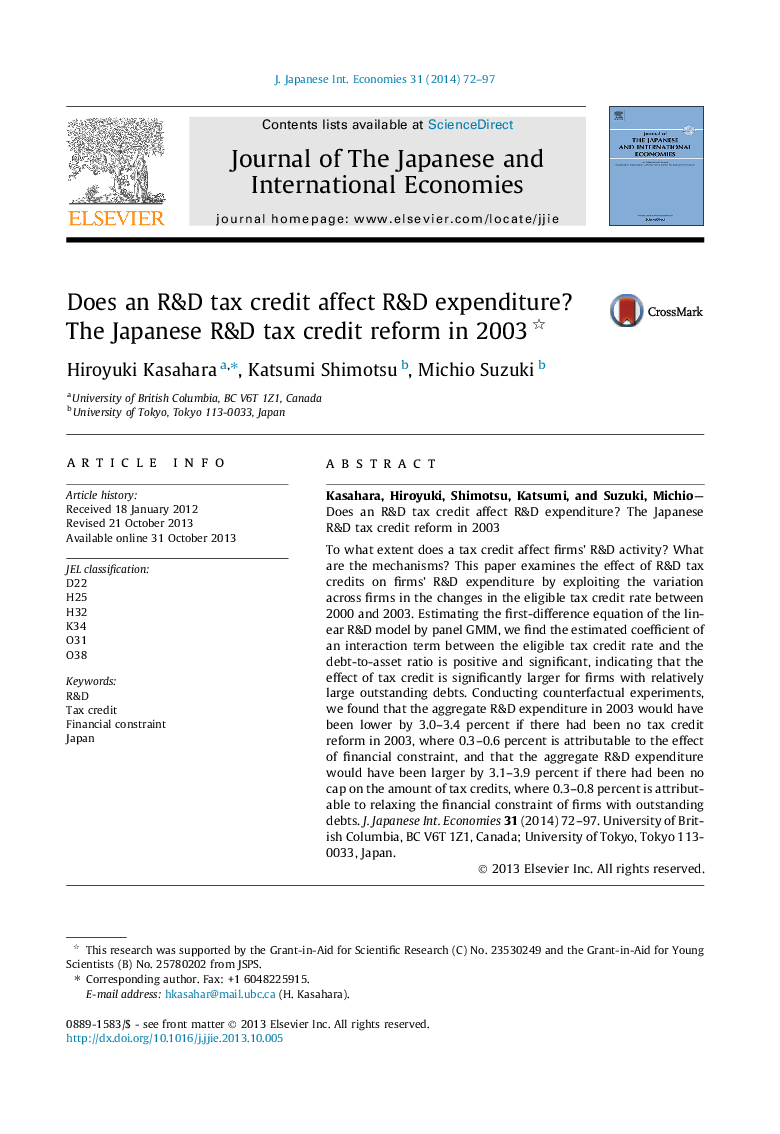| کد مقاله | کد نشریه | سال انتشار | مقاله انگلیسی | نسخه تمام متن |
|---|---|---|---|---|
| 965093 | 1479206 | 2014 | 26 صفحه PDF | دانلود رایگان |
عنوان انگلیسی مقاله ISI
Does an R&D tax credit affect R&D expenditure? The Japanese R&D tax credit reform in 2003
دانلود مقاله + سفارش ترجمه
دانلود مقاله ISI انگلیسی
رایگان برای ایرانیان
کلمات کلیدی
موضوعات مرتبط
علوم انسانی و اجتماعی
اقتصاد، اقتصادسنجی و امور مالی
اقتصاد و اقتصادسنجی
پیش نمایش صفحه اول مقاله

چکیده انگلیسی
To what extent does a tax credit affect firms' R&D activity? What are the mechanisms? This paper examines the effect of R&D tax credits on firms' R&D expenditure by exploiting the variation across firms in the changes in the eligible tax credit rate between 2000 and 2003. Estimating the first-difference equation of the linear R&D model by panel GMM, we find the estimated coefficient of an interaction term between the eligible tax credit rate and the debt-to-asset ratio is positive and significant, indicating that the effect of tax credit is significantly larger for firms with relatively large outstanding debts. Conducting counterfactual experiments, we found that the aggregate R&D expenditure in 2003 would have been lower by 3.0-3.4 percent if there had been no tax credit reform in 2003, where 0.3-0.6 percent is attributable to the effect of financial constraint, and that the aggregate R&D expenditure would have been larger by 3.1-3.9 percent if there had been no cap on the amount of tax credits, where 0.3-0.8 percent is attributable to relaxing the financial constraint of firms with outstanding debts.
ناشر
Database: Elsevier - ScienceDirect (ساینس دایرکت)
Journal: Journal of the Japanese and International Economies - Volume 31, March 2014, Pages 72-97
Journal: Journal of the Japanese and International Economies - Volume 31, March 2014, Pages 72-97
نویسندگان
Hiroyuki Kasahara, Katsumi Shimotsu, Michio Suzuki,